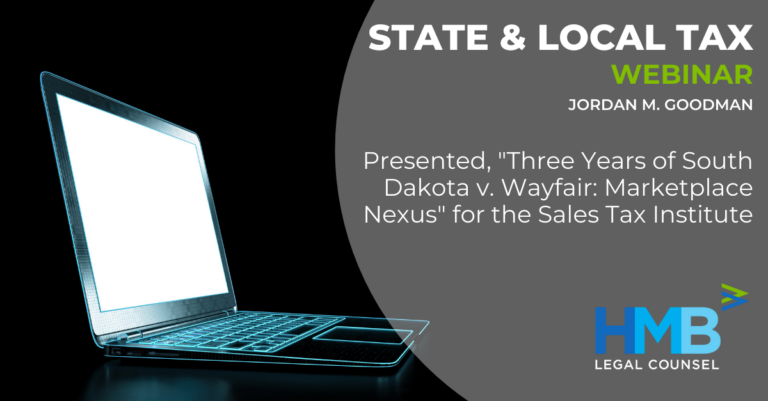In this series by Sales Tax Institute, Three Years of South Dakota v. Wayfair: is discusses how the South Dakota v. Wayfair decision has changed the landscape for businesses over the past three years.
The second wave of sales tax nexus legislation following the 2018 Wayfair decision was marketplace nexus or marketplace facilitator collection legislation.
In simple terms, this type of legislation requires an online marketplace facilitator or provider, such as Amazon, Etsy, or eBay, to collect sales tax on behalf of its sellers if the sales it facilitates or makes on its own behalf exceed the state’s economic nexus threshold.
How has marketplace nexus impacted the businesses that sell on marketplaces? To find out, we surveyed the Sales Tax Institute audience about their experiences. We also caught up with sales tax experts, Jordan M. Goodman, Rochelle Friedman Walk, M&A attorney at Aegis Law, Cameron Stearns, Executive Vice President and CFO at Mountain Rose Herbs, and Diane Yetter, President and Founder of the Sales Tax Institute, to find out how their companies and clients have been affected.
Read Part III in its entirety here.
View all parts of the series below.
Part I of the series covers the major challenges businesses have faced post-Wayfair and what's next for nexus.
Part II looks at the cost of compliance on businesses following the decision with an emphasis on how it has impacted technology needs and staffing.
Part IV looks into the cost of compliance on businesses.



